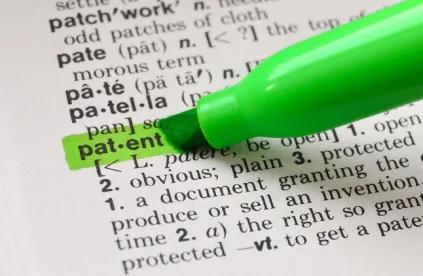Many patent practitioners assume that non-practicing entities cannot obtain permanent injunctions in patent cases. This is attributed to the belief that NPEs fail the four-factor test set out by the Supreme Court in eBay. Given that belief, it is surprising for some to learn that a recent decision from the Northern District of California resurrected decade old case law indicating that non-practicing entities can get injunctive relief. Practitioners having cases involving NPEs would do well to study this line of reasoning to be prepared for arguments surrounding permanent injunctions.
The four-factor test identified by the Supreme Court in eBay for determining whether to award permanent injunctive relief to a prevailing plaintiff requires the plaintiff to demonstrate: (1) that it has suffered an irreparable injury; (2) that remedies available at law are inadequate to compensate for that injury; (3) that considering the balance of hardships between the plaintiff and defendant, a remedy in equity is warranted; and (4) that the public interest would not be disserved by a permanent injunction. eBay Inc. v. MercExchange, L.L.C., 547 U.S. 388, 391, 126 S. Ct. 1837, 1839 (2006). After the eBay decision in 2006, it has been extremely rare for NPEs to be awarded permanent injunctions, but a recent district court decision has resurfaced the issue.
On July 3, 2018, Judge Chen from the Northern District of California denied a defendant’s motion to dismiss or strike a plaintiff’s prayer for injunctive relief where the defendant had argued for the dismissal given the plaintiff’s status as an NPE. Software Research, Inc. v. Dynatrace LLC, No. 18-cv-00232-EMC, 2018 U.S. Dist. LEXIS 111468, at *49-50 (N.D. Cal. July 3, 2018). The decision first questioned whether there was any proof that the plaintiff was in fact an NPE, but then indicated that even if the plaintiff were an NPE, the court could not find as a matter of law on a motion to dismiss that the plaintiff would fail to satisfy the eBay criteria. Id. The court then made the striking statement that “non-practicing entities have successfully managed to get injunctive relief post-eBay where they have shown potential injury to its licensing program.” Id. at *50.
As support for that statement, the court pointed to the decade old decisions of Commonwealth Sci. & Indus. Research Organisation v. Buffalo Tech. Inc., 492 F. Supp. 2d 600 (E.D. Tex. 2007) and Acticon Techs. v. Heisei Elecs. Co., 2007 U.S. Dist. LEXIS 100081 (S.D.N.Y. Aug. 1, 2007). Id. at *50 n.4. The citation to Acticon Techs. was surprising because as the court noted, even though an injunction was entered following a default judgment in that case, there were few facts in the magistrate judge’s report and recommendation to indicate that the plaintiff in that case was an NPE. Id. Judge Chen apparently took the initiative to review Acticon Technologies’ website, and then stated that “[b]ased on a review of plaintiff Acticon Technologies’ website, it appears that Acticon is involved solely in licensing its intellectual property and does not practice its patents.” Id.
The Commonwealth Scientific decision cited by the court was the subject of many articles back in 2007 speculating about its implications for permanent injunctions for NPEs, but has largely been forgotten over the intervening years. In that case, a research institution involved in licensing programs was granted a permanent injunction after the four-factor eBay test was found to have been met. Commonwealth Sci., 492 F. Supp. 2d at 604-07. Regarding the first factor to show irreparable harm, the plaintiff’s harm was explained to be not merely financial because its reputation was an important element in recruiting the top scientists in the world, and having its patents challenged via the courts not only impugned its reputation as a leading scientific research entity but also forced it to divert millions of dollars away from research and into litigation costs. Id. at 604. The harm of lost opportunities to start other research projects due to litigation costs was found to be irreparable because they could not be regained with future money as any opportunity that was lost would already belong to someone else. Id.
Regarding the second factor to show inadequate remedies at law, the plaintiff’s harm was found to be no less important than other recognized forms of harm a competitor might suffer to its brand name or sales position in the market, because its reputation as a research institution was found to be impugned just as another company’s brand recognition or good will may be damaged. Id. at 605. For the third factor, the balance of hardships was found to favor the plaintiff’s motion for permanent injunction because the harm that continued infringement would likely cause plaintiff’s research and development projects outweighed the harm that an injunction would cause the defendant in being excluded from competing in the market. Id. at 606-07. Finally, regarding the fourth factor, the public interest was explained as being advanced by encouraging investment by research organizations into future technologies, which served to promote the progress of science and the useful arts. Id. at 607.
The recalling of the long dormant Commonwealth Scientific decision by the court in Software Research breathes life again into the issue of permanent injunctions for non-practicing entities. It remains to be seen whether this is an isolated occurrence, or if this recent decision could spark a renewed interest by NPEs in permanent injunctions. Patent practitioners representing NPEs may see the potential for strengthened judgments, while those opposing NPEs should be prepared to respond to attempts for permanent injunctions.




 />i
/>i

